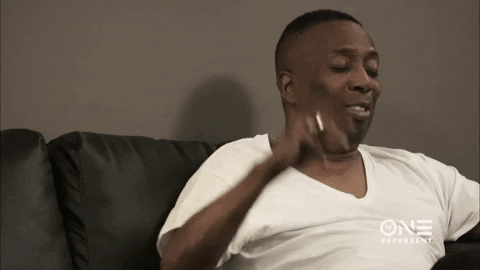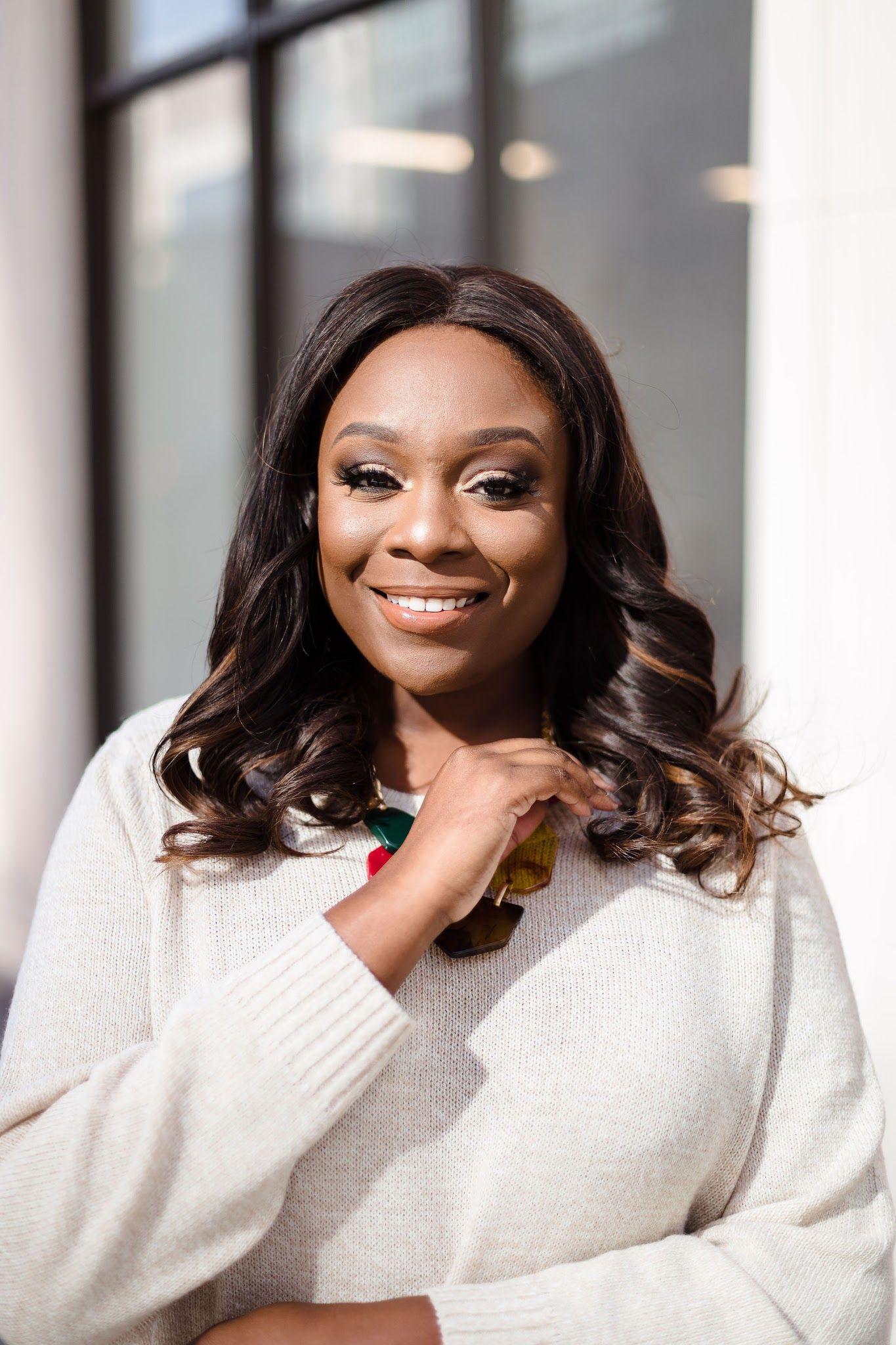Whether it's the new year, mid-year, or end of the year, it's important to keep up with finances all year. With legislation changing and more people seeking self-employment or side hustles, it can be challenging to shore up income and revenue streams. Add debt repayment, savings, and investing, and it's enough to make your head spin.
Moguls, we get it, and we got you.
We caught up with Rashida Thomas, a certified financial educator, to discuss how to identify debt you can pay off now, financial wellness, and the mindset you need to have all year long.
Rashida's journey is a personal one.
Before becoming a certified financial educator, certified credit consultant, and personal finance coach, she experienced financial struggle. We're talking over $100K in student loans and bankruptcy.

But she turned financial turmoil into triumph and shares her essential tips on making money moves and developing a boss—and resilient—mentality.
Keep reading for the gems!
You have an incredible story about debt repayment. What was the turning point to get control of your finances?
For doing the work that I do, my why is that we, as Black people, are often trying to figure out finances along the way.
I wasn't necessarily a first-generation college student. But I was the first person to navigate student loans, which I did alone. I didn't have all the knowledge available today to make sound decisions. It took a while to get to a place to address my financial situation. It took therapy, getting rid of a lifestyle that didn't serve me, was not sustainable, and making temporary sacrifices.
It starts with your mind eliminating the financial anxiety and getting on a path to eliminate debt and build wealth. As I worked through my journey, it was important for me to give back and help others avoid my situation and help people see that you CAN make it through even in heavy debt.
For doing the work that I do, my big why is that we as Black people are often trying to figure out finances along the way.

What is the biggest challenge to debt repayment?
The biggest challenge to debt repayment is not believing that you can pay off the debt. It all starts in your mind. It can be hard at times, especially if you have been in a perpetual cycle of financial struggle. But you must resolve the internal thoughts and feelings before you are in a place to receive advice and begin making changes to pay the debt.
There's another component to repayment. That's looking at your numbers and taking action. This may sound simple, but it's easy to be afraid of your numbers (income, accounts, savings, etc.) You're thinking, 'Is that really my financial situation?' So, the combination of not believing, not looking at your full financial picture, and not being ready to act are the challenges to the beginning and staying on a debt repayment journey.
[RELATED: Finance for Founders: Learn how to manage your finances while growing as an entrepreneur]
How should folks approach debt repayment and management? What tools or strategies should they use?
After reviewing your financial snapshot, you should understand your spending habits. This means looking at your fixed and variable expenses and studying specific spending patterns. For your variable expenses, ask yourself how much you are spending on groceries, takeout, or shopping. How much am I spending overall? You can use your bank and credit card statements for a spending summary. When you budget, you will be working with actuals and not arbitrary numbers.
How much are you spending on groceries? Takeout? Are you shopping? How much are you spending?
For variable expenses, consider beyond the numbers. Think about emotional triggers and ask how this shows up on my bank statement? What am I buying if I'm having a rough day? Understanding the emotions and spending will allow you to find healthier alternatives for coping, especially when you're on a debt repayment journey.
Debt repayment is one part of financial wellness. What other factors contribute to having financial security and, ultimately, financial freedom?
We've established that you must look at your numbers. Beyond that, you have to look at the people around you. Who is in your circle? Do these relationships further support you in your financial journey? Finances are personal. However, you may find that you need to pull back a little when trying to save and achieve financial goals.
Another important part of financial security and freedom is your wellness. How you move through the day and your energy directly tie to your wellbeing.
Before you give yourself to the world, you need to set the tone for showing up. It can be meditation or whatever keeps you grounded. This will allow you to think more clearly, especially if you are in a place where you are financially struggling temporarily. You will be able to write how you feel and give space to receive advice on how you can work to get out of your financial situation.

Why is mindset so important when talking about debt? What words should we keep in mind?
Two words: Belief and grace.
To develop your money mindset, you must believe that your situation can change. You have to think that you can establish a better relationship with money, be debt-free, and build wealth. When you're looking to repay debt, belief is a must. If belief is not there, habits will not change to align you with financial goals. You can try habits and rituals, but you will not see the lasting change without belief.
You can start small and focus on that one debt. But believing that you can overcome is essential. When you have that first win, you can further build from there. When you think that you can accomplish your financial goals, you will be more committed to making lifestyle changes. When you feel better, you show up better. Belief allows you to make moves.
When it comes to debt repayment and your financial journey, you need to give yourself grace. For past decisions, understand that you made specific financial decisions with the level of awareness and knowledge you had. Forgive yourself. Recognize that you can be mindful about saving, repayment, or even securing additional income streams.
Taking steps to understand your spending patterns, emotional triggers and creating an action plan are all significant steps to move forward.
What advice do you have for a) entrepreneurs, b) freelancers, c) employees, and d) those in transition/unemployed looking to make money moves?
In your journey of working to have a better relationship with money, paying off debt, and building wealth is never too late to start.
You are not beyond help.
Many experts will share steps to take without teaching how. For example, when you save, you can set up money from your paycheck to automatically go to accounts that are not easily accessible, such as a savings account. There may be a temporary sacrifice for more permanent results. But once you get there, you get to celebrate your progress.
There have been many historical barriers to wealth and financial security for Black people. These circumstances are not your fault. Learn to move past the shame and embarrassment and work on addressing your situation. There is a generational mindset that often follows but only through talking about it can we break this cycle and create healing.

LEVELING UP TAKES TIME
Moguls, when it comes to addressing your debt and leveling up your finances, you must start somewhere. Wherever you are currently, just get started. Start with your mindset, habits, and behaviors, and let that guide your decision-making. Financial wholeness and freedom aren't achieved in a day but remember, small steps and consistency equal progress.
Let's make money moves!
To learn more about Rashida's financial education and resources, including a financial snapshot worksheet, please visit her official website or follow her on Instagram.

